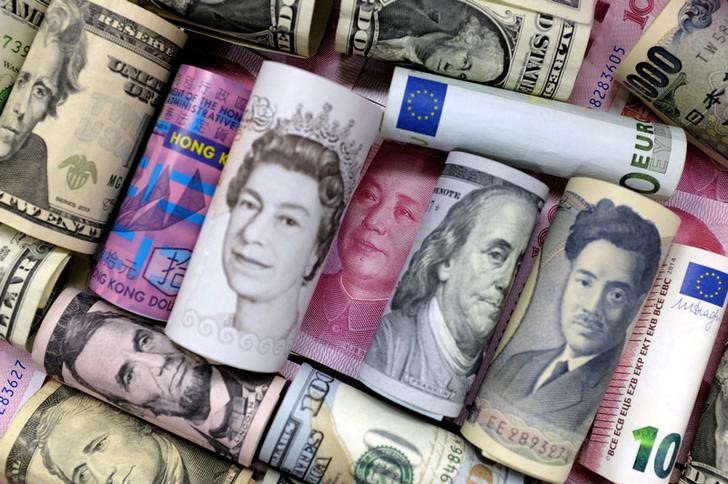By Richard Leong
NEW YORK (Reuters) - The dollar rose against a basket of currencies on Monday as the U.S. bond market selloff leveled off after the 10-year yield hit a four-year peak on worries that the Federal Reserve might raise interest rates faster to counter signs of wage pressure.
Analysts cautioned, however, that further gains in the greenback would be limited as other economies seem poised to expand quicker than the United States. Speculation that other central banks besides the Federal Reserve may roll back stimulus will probably cap the U.S. currency's recovery.
"The dollar selling (had been) overdone," said Paul Christopher, head global market strategist at Wells Fargo (NYSE:WFC) Investment Institute in St. Louis. "We think rates are not going to go up a lot more here."
Early on Monday, the benchmark 10-year Treasury yield (US10YT=RR) reached 2.885 percent, its highest since January 2014, after a robust jobs report showed wage growth last month posted its biggest annual gain since June 2009. The yield was last at 2.843 percent, down 1 basis point from late on Friday.
The Institute for Supply Management's gauge on U.S. services industries, which hit a 12-1/2 year high last month, also supported the dollar on Monday.
At 12:52 p.m. (1752 GMT), the dollar (DXY) was up 0.3 percent against a basket of six major currencies at 89.469 after gaining 0.6 percent on Friday.
"Could (Monday's performance) change the trend?" Christopher said. "I doubt it."
Data on currency futures positions showed net bearish bets against the dollar swelled to $17.5 billion
The euro fell 0.4 percent to $1.2410 (EUR=), slightly below a three-year high of $1.2538 on the EBS trading system (EUR=EBS).
The euro briefly pared losses following upbeat comments by European Central Bank President Mario Draghi before the European Parliament. But Draghi said the current surge of the single currency might impair its outlook for price stability.
Against the yen, the dollar weakened in step with losses on Wall Street, where rising bond yields have sparked selling in stocks on concerns about rising borrowing costs on corporate profits and consumer spending.

The greenback slipped 0.05 percent to 110.03 yen